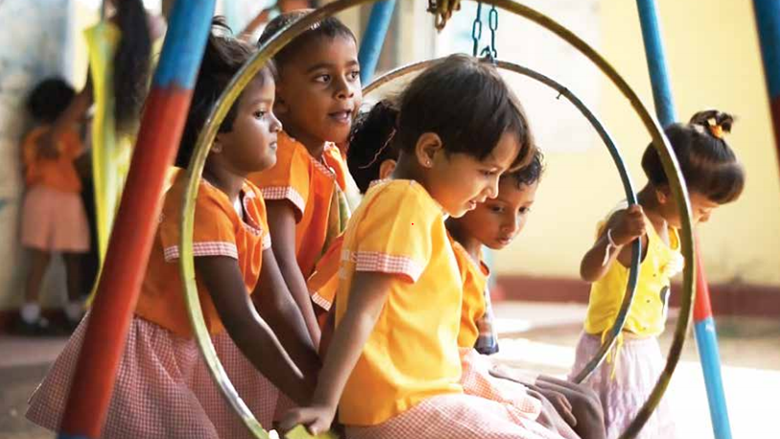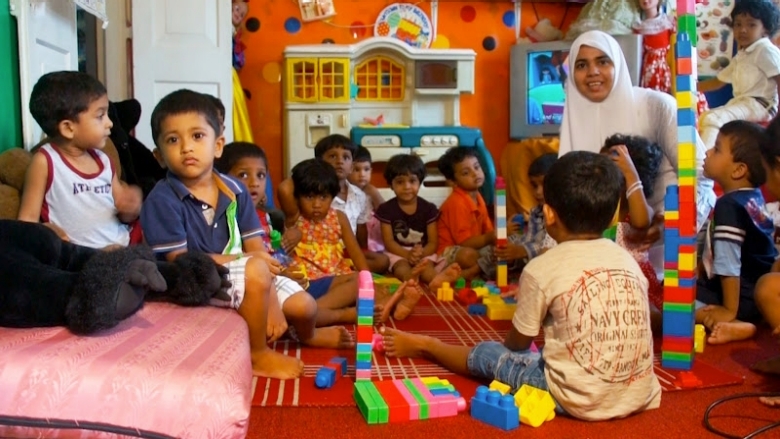Early childhood is considered to be the period from conception to 5 years of age. Monitoring and managing the milestones for the 0-2 year olds are well-established in Sri Lanka, with the health sector playing a lead role in ensuring the holistic development of these children. Center-based Early Childhood Development (ECD) programs for children in the 3-5 age range are less developed. Sri Lanka has around 17,020 ECD centers staffed by 29,340 teachers. Around 84 percent of these centers are under non-state management.
Investing early in education is a smart investment. The benefits of Early Childhood Education (ECE) are diverse. Equal access to early education will result in equal earning opportunities for individuals from diverse backgrounds. In addition, children will be better prepared for formal education, improving learning outcomes while accelerating human capital accumulation.

